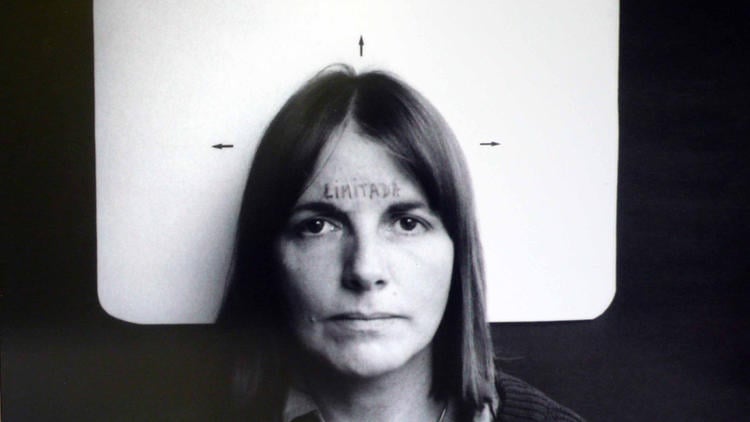
The Los Angeles art scene is now preparing for the fall 2017 launch of the second edition of Pacific Standard Time, which will involve over 40 Southern California institutions. Among the most eagerly awaited of exhibitions of the entire program, “Radical Women: Latin American Art, 1960–1985,” at Los Angeles’s Hammer Museum, has now announced its list of its 116 participating artists, reports the Los Angeles Times.
The all-woman cast hails from the US, Mexico, Central America, the Caribbean, and South America, and will contribute a total of 260 works to the show. The exhibition is inspired by Pacific Standard Time’s “L.A./L.A.” theme, which stands for Los Angeles/Latin America, and 14 countries, plus Puerto Rico, are represented.
“’Radical Women’ brings overdue scholarly attention to the extraordinary contributions that these Latin American women artists have made to the field of contemporary art,” said Hammer Museum director Ann Philbin in a statement, noting that the work in the exhibition reflects “the various political and social turmoil of their times, including the many dictatorships that ruled Latin American countries in the 1960s, 1970s, and early 1980s.”
Isabel Castro, “Women Under Fire” series (circa 1980). Courtesy of Isabel Castro.
“We are looking at a lot of women that have been completely overlooked,” added Cecilia Fajardo-Hill, who guest curated the show with Andrea Giunta, in speaking with the Times. “These are women that have shaped how we understand contemporary art today, how we use our bodies, how we can think about our bodies at a conceptual level.”
Alongside little-known artists like Puerto Rico’s Zilia Sánchez, who brought a sense of eroticism to geometric abstraction, and Brazilian video artist Leticia Parente, are big names like Cuban-American artist Ana Mendieta, whose boundary-pushing work made full use of the female body, and Brazilian sculptor Lygia Pape.
María Evelia Marmolejo, photograph of a performance about menstruation (1981). Courtesy of María Evelia Marmolejo.
Farjardo-Hill also made a point of tracking down women who had fallen out of the public eye, like Colombian artist María Evelia Marmolejo. “Before this moment, María Evelia was completely invisible. The history of art in Colombia had been written without her in it,” said Farjardo-Hill, who found the artist in New York, where Marmolejo dug up long-lost videos of her radical performance art. “She basically recovered her work.”
The exhibition aims to correct such omissions from the annals of art history, highlighting the impact these under-recognized women artists had on their countries and the art world as a whole.
ARGENTINA
María Luisa Bemberg (1922–1995)
Delia Cancela (1940–)
Graciela Carnevale (1942–)
Alicia D’Amico & Sara Facio (1933–2001 & 1932–)
Diana Dowek (1942–)
Graciela Gutiérrez Marx (1945–)
Narcisa Hirsch (1928–)
Lea Lublin (1929–1999)
Ana Kamien & Marilú Marini (1935– & 1940–)
Liliana Maresca (1951–)
Marta Minujín (1941–)
Marie Orensanz (1936–)
Margarita Paksa (1933–)
Liliana Porter (1941–)
Dalila Puzzovio (1943–)
Marcia Schvartz (1955–)
BRAZIL
Mara Álvares (1948–)
Claudia Andujar (1931–)
Martha Araújo (1943–)
Vera Chaves Barcellos (1938–)
Analívia Cordeiro (1954–)
Liliane Dardot (1946–)
Lenora de Barros (1953–)
Iole de Freitas (1945–)
Anna Bella Geiger (1933–)
Carmela Gross (1946–)
Ana Maria Maiolino (1942–)
Marcia X (1959–2005)
Ana Vitoria Mussi (1943–)
Lygia Pape (1927–2004)
Letícia Parente (1930–1991)
Wanda Pimentel (1943–)
Neide Sá (1940–)
Regina Silveira (1939–)
Teresinha Soares (1927–)
Amelia Toledo (1926–)
Celeida Tostes (1929–)
Regina Vater (1943–)
CHILE
Gracia Barrios (1927–)
Sybil Brintrup & Magali Meneses (1954– & 1950–)
Roser Bru (1923–)
Gloria Camiruaga (1941–2006)
Luz Donoso (1921–2008)
Diamela Eltit (1949–)
Paz Errázuriz (1944–)
Virginia Errázuriz (1941–)
Catalina Parra (1940–)
Lotty Rosenfeld / Group C.A.D.A. (1943–)
Janet Toro (1963–)
Eugenia Vargas (1949–)
Cecilia Vicuña (1947–)
COLOMBIA
Alicia Barney (1952–)
Delfina Bernal (1940–)
Feliza Bursztyn (1933–1982)
Maria Teresa Cano (1960–)
Beatriz González (1938–)
Sonia Gutiérrez (1947–)
Karen Lamassonne (1954–)
Sandra Llano Mejía (1951–)
Clemencia Lucena (1945–1983–)
María Evelia Marmolejo (1958–)
Sara Modiano (1951–2010–)
Rosa Navarro (1955–)
Patricia Restrepo (1954–)
Nirma Zárate (1936–1999)
COSTA RICA
Victoria Cabezas (1950–)
CUBA
Antonia Eiriz (1929–1995)
Ana Mendieta (1948–1985)
Marta María Pérez (1959–)
Zilia Sánchez (1928–)
GUATEMALA
Margarita Azurdia (1931–1998)
MEXICO
Maris Bustamante (1949–)
Ximena Cuevas (1963–)
Lourdes Grobet (1940–)
Silvia Gruner (1959–)
Kati Horna (1912–2000)
Graciela Iturbide (1942–)
Ana Victoria Jiménez (1941–)
Magali Lara (1956–)
Mónica Mayer (1954–)
Sarah Minter (1953–2016)
Marta Palau (1934–)
Polvo de Gallina Negra (1983–1993)
Carla Rippey (1950–)
Jesusa Rodríguez (1955–)
Tlacuilas y Retrateras (1983–1984)
Pola Weiss (1947–1990)
PANAMA
Sandra Eleta (1942–)
PARAGUAY
Olga Blinder (1921–2008)
Margarita Morselli (1952–)
PERU
Teresa Burga (1935–)
Gloria Gómez Sánchez (1921–2007)
Johanna Hamann (1954–)
Victoria Santa Cruz (1922–2014)
PUERTO RICO
Poli Marichal (1955–)
Frieda Medín (1954–)
URUGUAY
Nelbia Romero (1938–2015)
Teresa Trujillo (1937–)
UNITED STATES
Celia Alvarez Muñoz (1937–)
Judy Baca (1946–)
Josely Carvalho (b. Brazil, 1942–)
Isabel Castro (1954–)
Barbara Carrasco (1955–)
Yolanda López (1942–)
María Martínez Cañas (b. Cuba, 1960–)
Sylvia Palacios Whitman (b. Chile, 1941–)
Sophie Rivera (1938–)
Sylvia Salazar Simpson (1939–)
Patssi Valdez (1951–)
VENEZUELA
Marisol Escobar (1930–)
Mercedes Elena González (1952–)
Margot Romer (1938–)
Antonieta Sosa (1940–)
Tecla Tofano (1927–)
Ani Villanueva (1954–)
Yeni & Nan (1977–1986)
“Radical Women: Latin American Art, 1960–1985” is on view at the Hammer Museum, 10899 Wilshire Boulevard at Westwood, Los Angeles, September 17, 2017–December 31, 2017.